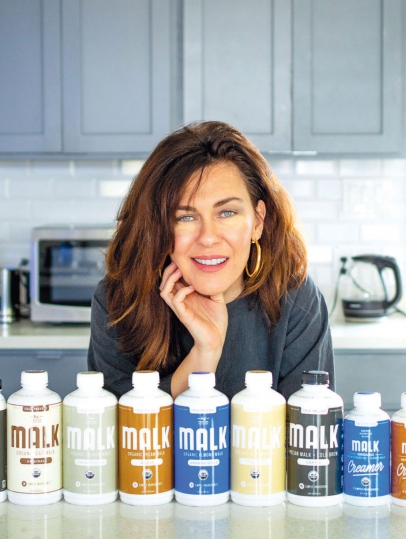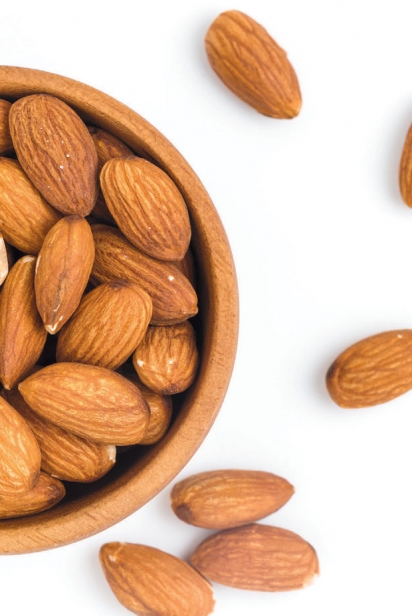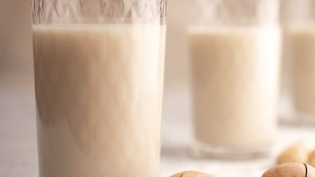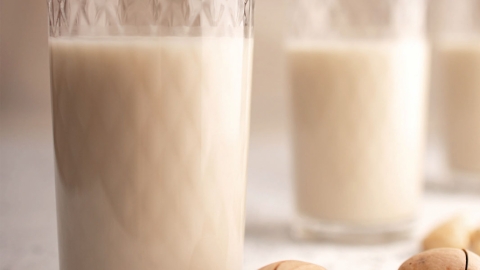Houston Company MALK is Nuts for Milk
Plant-based beverage firm takes root in Houston
In seven years, MALK Organics—a Houston-based alternative dairy company that produces organic beverages like almond milk, pecan milk and cashew milk—has gone from being a vendor at the Urban Harvest Farmers Market to now featuring its product over international borders in Canada. And while August Vega, founder and CEO of MALK, embraces her role as a nondairy entrepreneur, the inner workings of her growing enterprise actually began in the home kitchen.
After discovering over a decade ago that her 1-year-old son, like herself, had a severe dairy allergy, Vega scoured through online blogs and articles to create a homemade almond milk, free of the foreign, difficult-to-pronounce ingredients found in many nondairy options, that could nourish her growing son.
“Even then, the plant-based milk selection was pretty dismal. The milks that were on shelves had tons of ingredients and there weren’t many organic options, so I knew I’d have to do something different for him. That’s when I decided to make his almond milk,” Vega says.
According to the Good Food Institute, sales of U.S. plant-based ready-to-drink beverages grew 39% from 2017 to 2019. And to say the traditional dairy industry is reeling from alternative milks’ surge in popularity would be an understatement. According to the Dairy Farmers of America, traditional milk sales fell over $1 billion in 2018 alone. And from 2019 to 2020, Dean Foods, the largest milk processing company in America, and the 80-year-old dairy conglomerate Borden Dairy have both filed for bankruptcy protection. Times are changing and “milk” no longer requires a cow.
“The plant-based world has increased so much and so many people who have never had an idea to turn plant-based have at least added a plant-based milk to their diet if not completely switched over to them,” Vega says. “People understand they don’t have to rely on one option anymore.”
While consumers are familiar with lactose-free staples like almond, cashew and soy milk, Vega and her business partners—her brother Justin Brodnax and cousin Joel Canada—took a creative route at the start of their business and followed up their almond milk with a beverage inspired by a beloved Texas ingredient: pecans.
Sourcing pecans from Houston’s own Rio Grande Organics and adding four additional ingredients—maple syrup, natural vanilla flavor, Himalayan salt and filtered water—MALK creates a beverage that tastes like melted pecan ice cream.
Late last year, they also released a brand new beverage—one that speaks to a growing trend in the coffee world. Originally made popular in New York coffee shops because of its ability to foam well, oat milk has garnered more demand and interest across the nation, and MALK has responded in kind with their own rendition—minus the canola oil that many other oat milks feature.
Made with certified organic and gluten-free oats, water and Himalayan salt, it took almost a year to get MALK’s creamy oat milk just right before releasing it to the public. “It’s the cleanest oat milk on the market because it doesn’t have any oils, gums or fillers,” Vega says.
In making their nut-based milks, MALK relies on a tried-andtrue process, similar to the one Vega developed in her home kitchen. Sourcing certified organic, kosher and gluten-free ingredients, MALK begins with soaking the nuts overnight, which activates a host of otherwise dormant nutrients and enzymes. Then, they blend the activated nuts together with filtered water and each further ingredient, such as Himalayan salt or maple syrup, before filtering out the residual pulp.
And thanks to a recent upgrade in equipment, only an estimated 5% by-product remains after filtering their milks, which the company then donates to a local farm for composting.
“A lot of times when you are looking at a layered process, you have to ask yourself ‘Is it organic, are chemicals being used, how much water is going into it, when you get to processing the milk is there waste or by-product, or are you using the whole nut in the whole process?’ There are a lot of variables and we address them all,” Vega says.
In a commitment to zero waste in their production process, even the packaging will soon be upgraded to reduce the company’s overall carbon footprint. “We will be transitioning into a plastic bottle that’s made from 100% post-consumer recycled plastic this summer. Rather than switching to a carton or Tetra Pak [packaging that is challenging to recycle], we chose 100% post-consumer recycled plastic bottles,” Vega says. “Many consumers do not realize that cartons are lined with 20% plastic and for Tetra Pak to be truly recycled, the layers of paperboard, plastic and aluminum would need to be separated out and reformed to make new Tetra Pak cartons. So, if you don’t recycle a carton of milk, it will have the same lifecycle as plastic, resulting in microplastics in the ocean. Creating new plastic is a problem and we’re ready to be part of the solution.”
Despite the fact that MALK now fills the commercial fridges of stores like Target, Kroger, Sprouts, HEB, Central Market and Whole Foods, Vega admits she misses the farmers market days and hopes to find a way to have a presence there again soon.
“The farmers market is our home, but we grew quickly and couldn’t sustain being there,” Vega says. “That crowd is not one to be fluffy and just tell you what you want to hear, and we love that. We’d hope to go back to one day and do something collaborative with them.








